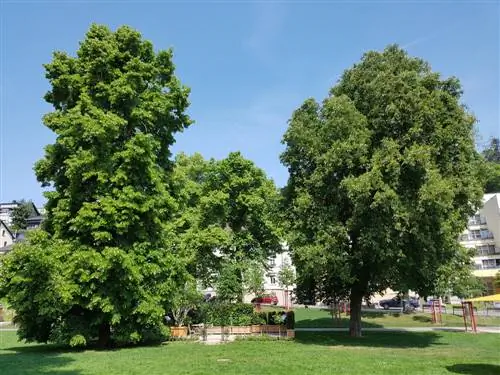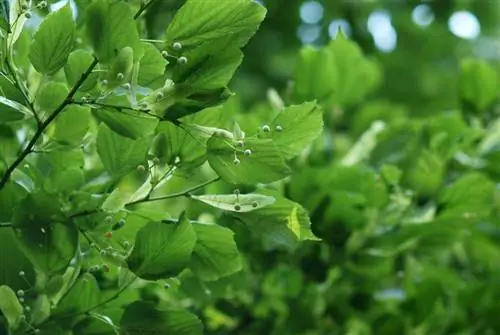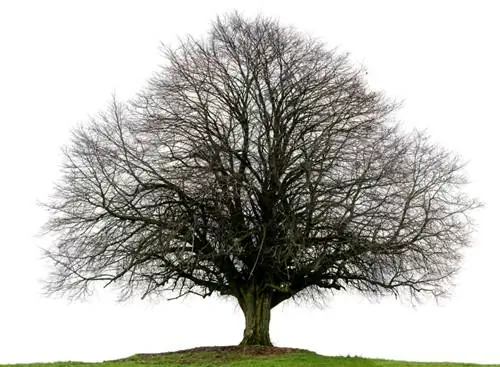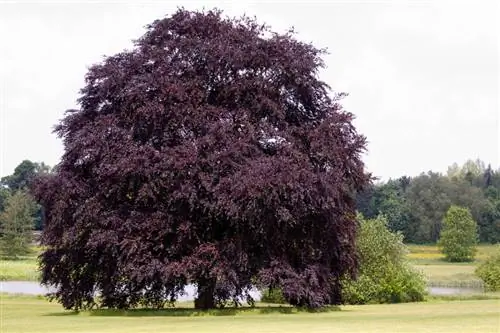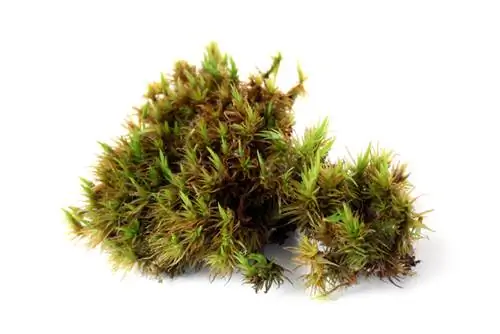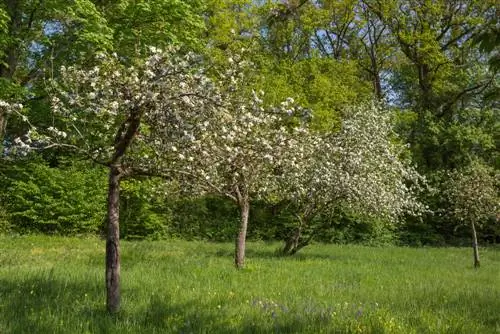- Author admin [email protected].
- Public 2023-12-16 16:46.
- Last modified 2025-01-23 11:21.
People have always attributed a positive mythological meaning to the linden tree. As early as the Middle Ages, people gathered under its leaves to hold parties, dance, but also to hold legal negotiations and marry lovers. Have you ever tasted sweet linden honey? Then you will definitely want to find out more about the deciduous tree. The following profile brings you closer to the summer linden tree.
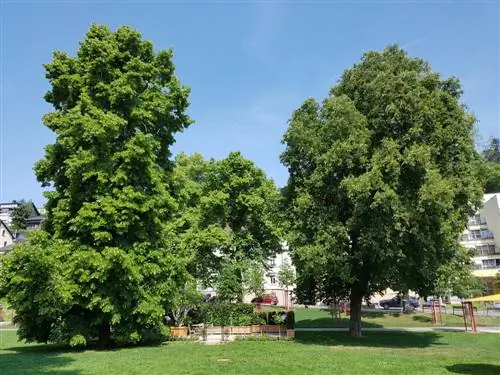
What are the characteristics and requirements of the summer linden tree?
The summer linden tree (Tilia platyphyllos) is a deciduous tree from the mallow family that can live up to 1000 years. It is characterized by heart-shaped leaves, yellow flowers with a strong scent and spherical fruits. The summer linden tree prefers wet, nutrient-rich soils and is frost hardy.
General
- German name: summer linden tree
- Latin name: Tilia platyphyllos
- other name: large-leaved linden tree
- Tree type: deciduous tree
- Family: Mallow family
- poisonous?: no
- Age: up to 1000 years
External characteristics
leaves
- Shape: alternate, heart-shaped, notched, tapering
- Color: The top of the leaf is green, the bottom of the leaf is slightly lighter with white tufts (difference to the winter linden tree: this one has brown hairs)
- Length: 5 to 15 cm
- Width: 5 to 15 cm
- Autumn color: yellow
Bloom
- Flowering time: June (the earliest flowering type of linden tree)
- Color: yellow
- Scent: very strong
- Shape: umbels
- Length: 7 to 10 cm
branches
- red-brown
- hairy
Fruit
- Shape: spherical, often with three to five edges
- Type of fruit: nuts, capsule fruits
- Color: gray
- Surface: felty, heavily woody
- Fruit ripening: September
- Difference to the winter linden tree: the fruits cannot be crushed between the fingers
Bark and wood
- Bark color: gray
- Structure of the bark: smooth when young, later elongated cracks form
- Color of the wood: yellowish white sapwood, dark core
- Consistency of the wood: tough, easy to split and process, dries quickly
Root
- Deeproots
- forms a taproot
- forms a heart root
- The size of the root exceeds that of the treetop
- high fine root content
- deep roots protect the summer linden tree from being uprooted by storms
Demands and environmental requirements
Location
- Lighting conditions: sunny to partially shaded (the more suitable the other factors, the more shade it can tolerate)
- Temperature: Frost hardiness down to -28°C
- can stand alone or in groups, often found in parks
- harmonizes well with oak or pine trees
Floor
- Texture: sandy or loamy
- pH value: slightly acidic or alkaline
- wet soils (does not tolerate drought)
- nutrient-rich soils
Usage
- for making lime blossom tea
- for making lime blossom honey
- for producing essential oils
- as a home remedy for flu infections or poisoning
- works sweaty
- Wood is used in sculpture, turning or carpentry
- or made into toys, decorative moldings and musical instruments
- the charcoal serves as charcoal

